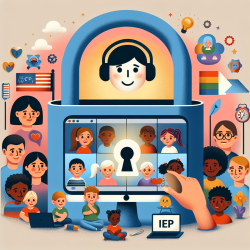Introduction
In the ever-evolving landscape of special education, the integration of technology and data-driven approaches is essential to enhance learning outcomes. The research article titled "Hierarchical Attention Networks for Information Extraction from Cancer Pathology Reports" offers groundbreaking insights into how deep learning models can be leveraged for efficient information extraction. Although the study focuses on cancer pathology reports, the underlying principles can be adapted to improve practices in special education.
Understanding Hierarchical Attention Networks (HANs)
Hierarchical Attention Networks (HANs) are a sophisticated form of deep learning models designed to process and extract information from unstructured text. Unlike traditional machine learning models, HANs capture syntactic and semantic contexts, making them highly effective for tasks requiring nuanced understanding. In the context of the study, HANs outperformed other models in extracting critical information from cancer pathology reports, showcasing their potential in handling complex data.
Application in Special Education
While the research is centered on pathology reports, the principles of HANs can be applied to special education to improve data extraction and analysis. Here’s how practitioners can implement these outcomes:
- Enhanced Data Analysis: Use HANs to analyze student performance data, identifying patterns and insights that traditional methods might miss.
- Personalized Learning Plans: By extracting detailed information from student reports, educators can tailor learning plans to meet individual needs more effectively.
- Efficient Resource Allocation: Understanding data at a granular level allows for better allocation of resources, ensuring that students receive the support they need.
Encouraging Further Research
For practitioners interested in exploring the potential of HANs further, consider the following steps:
- Stay Informed: Regularly attend conferences and webinars focused on AI and machine learning in education.
- Collaborate with Experts: Partner with data scientists and researchers to explore how HANs can be customized for educational purposes.
- Pilot Programs: Implement small-scale pilot programs to test the efficacy of HANs in extracting educational data.
Conclusion
The integration of Hierarchical Attention Networks into special education holds the promise of transforming how we understand and respond to student needs. By leveraging these advanced models, educators can enhance their ability to provide personalized, effective education to all students.
To read the original research paper, please follow this link: Hierarchical attention networks for information extraction from cancer pathology reports.










